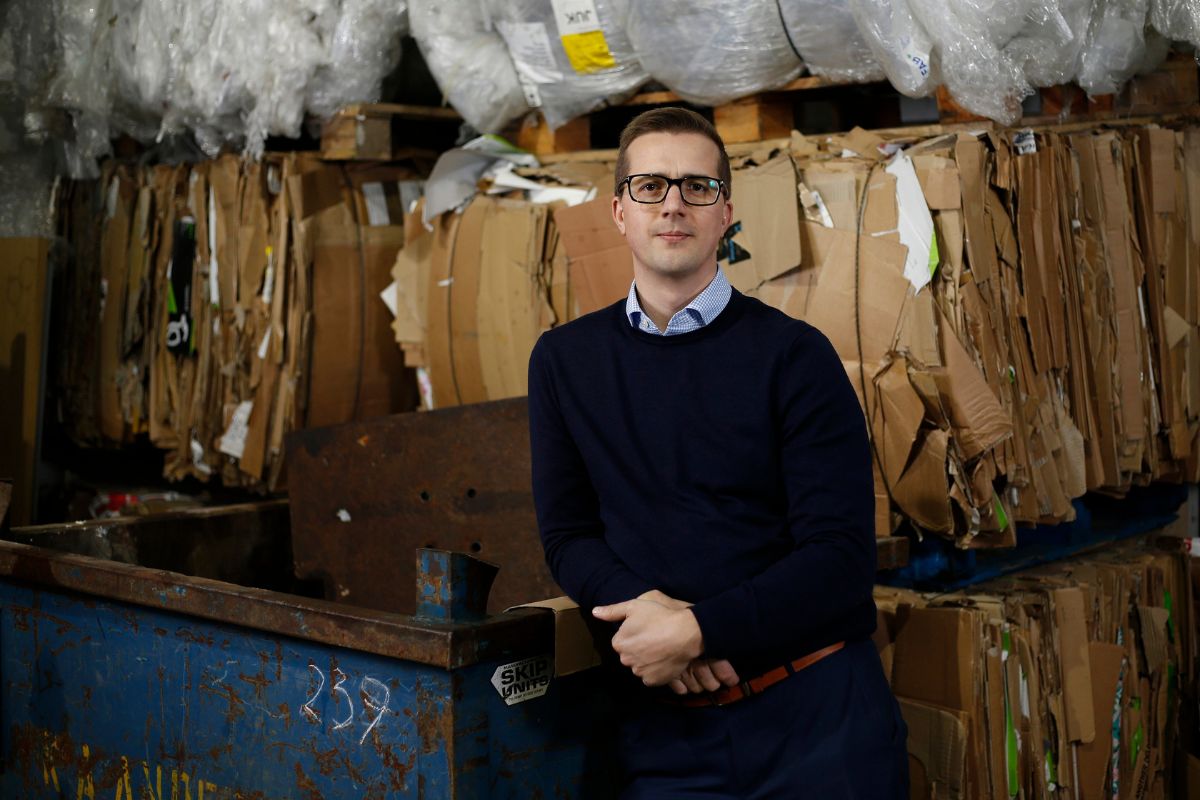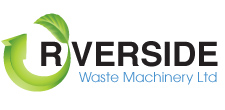 Add My Company
Add My Company

As we stand at the threshold of a new year, the promise of heightened environmental progress and change beckons. In the wake of increased public awareness and evolving legislative landscapes, businesses find themselves at a pivotal moment, compelled to embrace sustainability as a core facet of their operations. Jonathan Oldfield, managing director of Riverside Waste Machinery, delves into the unfolding narratives and pivotal developments in waste management and sustainability.
While once upon a time the environment was seen by many as someone else’s problem, we’re pleased to have noticed a positive shift in public awareness over recent years. People, on the whole, now realise that we have a responsibility to look after our spaces in a way that limits any negative environmental impact and protects our planet for future generations.
Businesses recognise that they too have an important role to play in maintaining ethical environmental practices – whether as a result of legislated changes, or due to the moral responsibility they carry. And with waste management processes an important piece of the sustainability puzzle for every commercial environment, we’ve kept abreast of the headlines to bring you a round-up of some of the most noteworthy developments.
– Sustainability Disclosure Standards (SDS)
The UK Government has put forth its intention to create a set of Sustainability Disclosure Standards which “set out corporate disclosures on the sustainability-related risks and opportunities that companies face.” Expected to be live in 2024, the UK framework will be based on existing international standards and will diverge only if deemed necessary to address matters specific to the UK.
By closely aligning the international and UK frameworks, it’s intended that disclosures are comparable globally – assisting investors in their decisions. This important development raises the stakes when it comes to the environmental choices businesses make, with the potential for waste management failures to impact the longer-term plans for business owners. As a result, it’s expected that the framework will encourage further progress when it comes to the sustainability agenda.
– Oatly named the UK’s most sustainable brand
Showing the importance of sustainability in business, oat drink manufacturer Oatly was ranked top in a poll of 4,000 consumers tasked with choosing the most sustainable British food and drink brand. One of the categories in question was packaging, demonstrating how closely customers link recyclability with sustainable practices.
Having scored the top spot, Oatly will likely waste no time in promoting their successes – and garnering a legion of new customers as a result. It’s great to see brands raising the bar when it comes to sustainable processes.
Global environmental news overview
– Underscoring transformative power of policy with COP28
Having been hosted in the UK, COP26 proved an important catalyst in generating and extending conversation around sustainability within our country. With COP28 being hosted in the United Arab Emirates towards the end of 2023, world leaders descended upon the country to discuss a global deal on climate change.
As a crucial element of sustainability, waste management was on the agenda – bringing a fresh focus to the importance of environmentally-friendly disposal processes.
– US food loss and waste under the microscope
The US Food and Drug Administration, the US Department of Agriculture, and the US Environmental Protection Agency have joined together in a bid to curb food loss and waste in the US and secure a more sustainable future. Proposing a 50% reduction by 2030, the trio aims to reduce the loss and waste of food, as well as increasing the recycling rate for organic waste.
And while a reduction in waste is always desirable, this shows the important role recycling plays in thoughtfully reusing unavoidable excess – whether that’s food, organic matter, or packaging.
Sustainable practices and innovations
– Green finance moves up the agenda
During 2023, a surge in discussion around green finance has made the concept an increasingly hot topic. And now COP28 has seen the finance sector come under increased pressure to make their niche green products mainstream, with private capital touted as key to driving greener practices among businesses.
Despite a lack of marketing around green finance, it’s a readily available option worth exploring for those keen to make progress with their sustainability goals – but who may currently lack the funds to bring these initiatives to life.
– Interpreting the Global Circularity Report 2023
The recently released Global Circularity Report 2023 acts as a comprehensive overview of global environmental initiatives, underscoring the urgency of bridging the gap between current practices and a truly sustainable future. Startling statistics within the report reveal that in the six years since its inception, the circularity rate has plummeted from 9.1% to a disconcerting 7.2%. Additionally, only 8.6% of the world’s resources are currently recycled. As waste management professionals, it is crucial for us to recognize the shared role we play in narrowing such a gap and aligning our practices with the circular economy principles outlined in the report. This emphasises the need for comprehensive and sustainable waste solutions, reinforcing the importance of initiatives like the Sustainability Disclosure Standards and the efforts of businesses such as Oatly in advancing environmental responsibility.
– Riverside’s impact and contributions
At Riverside, we work to limit the impact of waste on the environment. By compacting various types of waste such as plastic and cardboard, it can be more easily transferred for recycling and subsequent re-use – preventing unnecessary environmental impact.
For many commercial and industrial settings, baling plays a crucial role in improving sustainability practices – especially in industries where packaging is otherwise discarded in large volumes. By baling and then recycling this waste, organisations can play their role in creating a circular economy — all while improving their environmental credentials in the process.
With a much sharper focus on sustainability, both from a government and consumer perspective, it’s more important than ever that businesses play their part in making better choices – and protecting our environment for generations to come.
Why not share your thoughts on some of the topics discussed over on social media, using the hashtag #BaleYourWaste.
For more information on our products, and the ways we can support you in reaching your sustainability goals, please explore our website or contact a member of the team who’d be happy to talk you through what we can offer.
For more information on The shifting environmental landscape in 2024 and beyond talk to Riverside Waste Machinery Ltd
